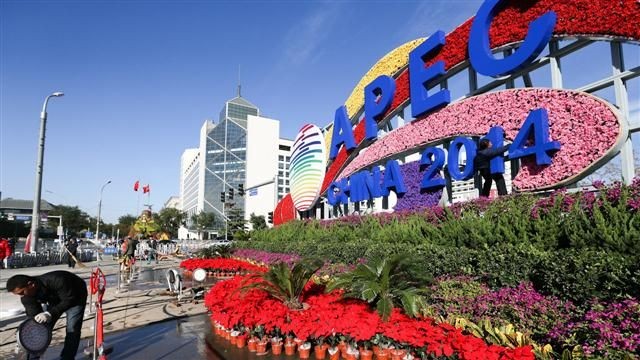Blue skies were seen throughout the Asia-Pacific Economic Cooperation summit held in Beijing due to numerous pollution-control measures implemented. However, smog returned to the city after the strict regulations were lifted. The National Development and Reform Commission, however, said that a permanent "APEC Blue" may finally be achieved in 2030, as the country is making efforts to cut down on coal consumption.
NDRC vice chairman Xie Zhenhua said on Tuesday that the clear blue skies during the summit is proof that improvements on air quality can be achieved if anti-pollution measures are implemented.
"We are now taking a solid and fundamental approach to further curb pollution. Air quality will be greatly improved in the year 2030," said Xie during a conference on Tuesday.
However, the anti-pollution measures proved to be costly for China's economy.
Beijing halted around 10,000 industrial plant operations in the city and neighboring ones as well. An odd-even license plate number scheme was also implemented, reducing the number of cars traveling during the summit. Heating service in the Tianjin city was also delayed.
Switzerland-based financial services firm Credit Suisse said that the regulations have affected around 3 percent of the country's industrial output, 13 percent of cement and around 25 percent of its steel outputs. This translates to about 0.4-percentage reduction in the country's November industrial production numbers.
An article from the People's Daily said that anti-pollution measures were costly and not "sustainable."
"The biggest legacy of 'APEC Blue' is that it demonstrates clearly what costs we need to pay in order to bring the blue skies back," the article said.
According to Xie, China has plans to cut down on coal usage. The government's current plan is to reduce coal's total energy consumption down to 62 percent by 2020 from 66 percent in 2013.
Xie also said that the country will be raising the usage of non-fossil fuel by the same year up to 15 percent, and reduce carbon intensity in 2020 by 45 percent from 2005's level.



























